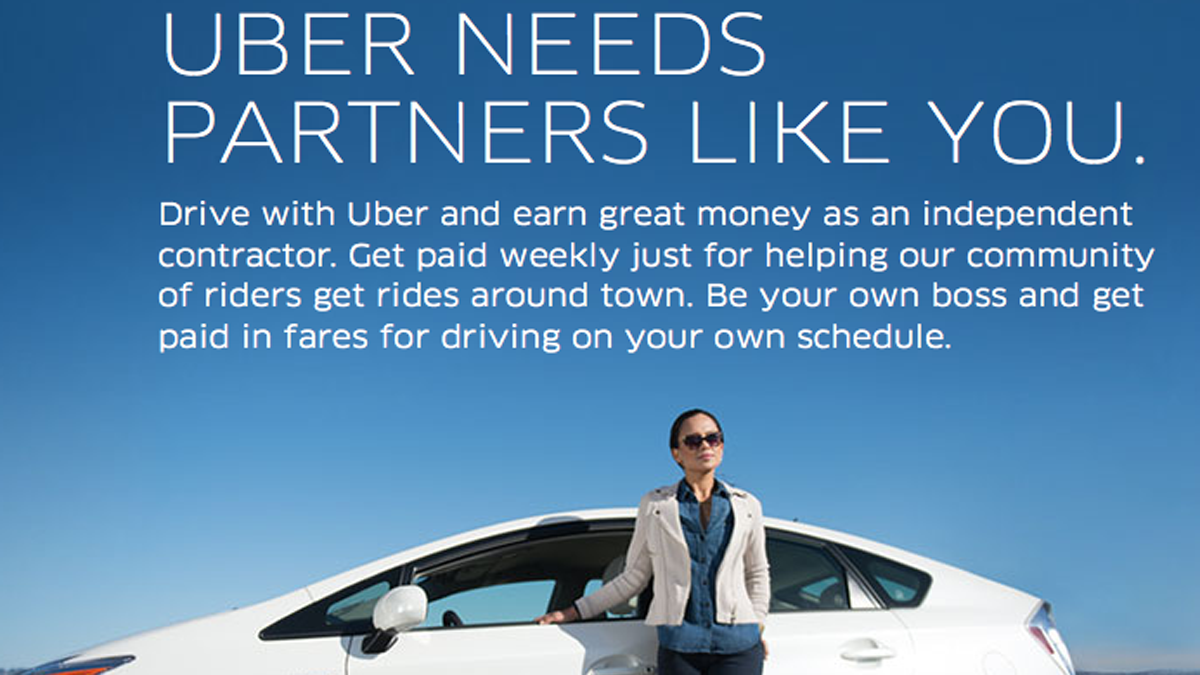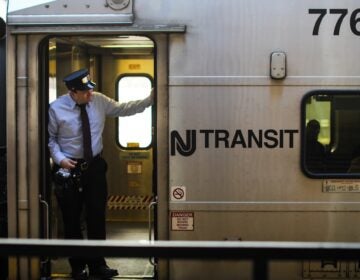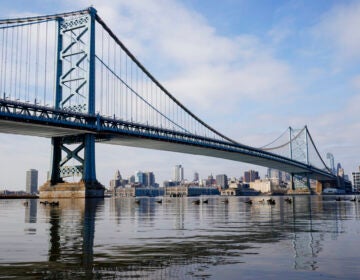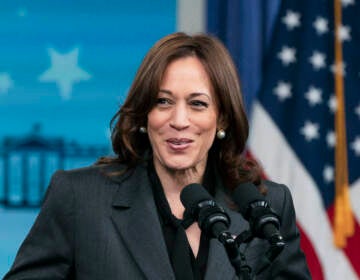California case could drive Uber’s ‘independent contractor’ claims to Pennsylvania court
Listen
(Electronic Image via get.uber.com)
With a labor dispute case in California carrying the potential to deliver a serious blow to the ride-sharing service Uber, the company has pointed to Pennsylvania as a place that has come to the defense of Uber’s business model.
“Labor authorities in Georgia, Pennsylvania, Texas, Colorado, Illinois and New York have upheld Uber’s classification that its drivers are independent contractors,” an Uber spokeswoman told numerous publications.
What the spokeswoman is referring to, though, is an Allentown Uber driver who filed an unemployment claim with the state’s labor department asking Uber to pay up, a request that officials ultimately denied last November.
“The claimant has established himself as an independent contractor providing transportation services and must be considered self-employed under the law,” wrote a state official in the department of labor’s final decision.
But wait a minute before calling that a vote of confidence in Uber’s independent contractors, labor officials say.
“It doesn’t mean that’s going to be the case in another one. We look at each case individually, because there’s so many factors that come into play in unemployment compensation,” said state labor department spokeswoman Sara Goulet.
It was the first unemployment claim made against Uber, state labor officials confirmed, but expected to be far from the last.
The Allentown case will have no bearing on future decisions, and regulators in Pennsylvania could prove to be divided on whether Uber’s freelancers are beyond reproach since state law on the matter is imprecise.
“It could move way up into Commonwealth Court, even state Supreme Court. So there are other things that could possibly happen with this moving forward. I’m not saying this particular case, but cases, there’s other ways to move up through the system.”
Uber links freelance drivers with people who needs rides through a smartphone app. Drivers pay out of pocket for their gas and maintaining their vehicle, but Uber says drivers keep 80 percent of each fare. The San Francisco-based startup also requires drivers to sign a contract that categories them as independent contractors.
As a result, Uber doesn’t pay for their drivers’ health insurance and the company doesn’t have to pay any overtime. Furthermore, Uber doesn’t pay payroll or Social Security taxes for its drivers.
In California, regulators deemed the driver an employee because she was “integral” to Uber’s business. The state’s order said that without drivers, Uber would not exist. For just two months of work, officials said Uber owes the driver more than $4,000 in unpaid expenses from paying for gas and tolls.
An Uber spokeswoman wrote by email: “It’s important to remember that the number one reason drivers choose to use Uber is because they have complete flexibility and control. The majority of them can and do choose to earn their living from multiple sources, including other ride sharing companies. We have appealed this ruling.”
If the case winds up in front of California’s Supreme Court, which could take years, and the driver prevails, Uber’s business model could be in trouble, says University of Southern California law professor Jonathan Handel.
Meanwhile in Pennsylvania, he says it’s just a matter of time before an Uber driver becomes a plaintiff in a case to challenge the state’s law on what constitutes being self-employed, which is unclear under state law.
One state court concluded that when an employer supplies equipment, pays a fixed rate and calls for a dress code, for example, an individual is an employee, not a contractor.
The decision also notes that “self-employment” is not defined by state law, but generally courts have agreed that independent contracters should be considered freelancers.
“Until there is a test case and a ruling, all you get on these cases is ambiguity because we’re talking about something that’s political. We’re talking about something that’s new and technological,” Handel said. “I do think that it’s likely that employee attorneys in the worker area are looking at this and looking at existing precedent in Pennsylvania and trying to decide if a test case might be useful”
Handel views the Uber model, replicated by several other startups in the so-called sharing economy including Airbnb, as an uncertain and problematic arrangement for workers in the long term.
“There is a distinct effort by technology companies to continue to invest in just that, technology, and under-invest and lessen their reliance on labor, actual workers, whether you call them employees or independent contractors,” he said.
Labor attorney David Rosenfeld says since state labor laws vary on what constitutes a private contractor, it’s going to take a long time for states to figure out whether the Uber and others are stretching the limit of what it means to be an independent contractor.
“You can’t support a family on uncertainty. It is true that some like the flexibility of working at various times, but Uber can manage that by telling an employee, ‘If you don’t want to work some days, you don’t have to, or you can work whatever hours you choose,’ and they can create the flexibility for employees just like they do private contractors,” he said.
“The fact is this is just a way of creating a cheaper economy for workers by not paying their unemployment benefits, not paying their Social Security, not paying the federal unemployment taxes and claiming it’s a matter of flexibility, when really it’s a matter of making more money for Uber,” Rosenfeld said.
Handel says Uber might have a way to escape labor disputes: robots. The company is already testing its first self-driving car in Pittsburgh, launched by researchers at Carnegie Mellon University.
“There will be a very difficult day of reckoning coming for people who drive for Uber, and, it may come as soon as five years from now, when you may see in some cities a choice on the app: ‘Do you want to be driven by an automated car, or do you want to be driven by a person driving a car at a higher price?'”
But before Uber introduces robotic cars in Pennsylvania, the company needs to handle at least one other looming issue.
Regulators at the Pennsylvania Public Utility’s enforcement arm are pursuing a $19 million fine against the ride-sharing company for ignoring a cease-and-desist letter sent by state officials, who later granted Uber a two-year license.
Briefs from both sides are due in early August in the fine dispute.
And while Uber has a pilot-program license to operate in much of Pennsylvania, its low-cost Uber-X service is still considered illegal by the Philadelphia Parking Authority, which regulates taxis in the city.
WHYY is your source for fact-based, in-depth journalism and information. As a nonprofit organization, we rely on financial support from readers like you. Please give today.




